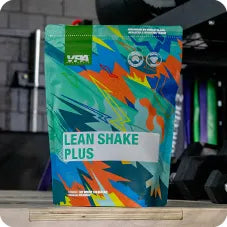Your Cart is Empty
Everything You Need to Know About Whey Protein
April 16, 2020 6 min read

What is Whey Protein?
Physical exercise and athletic performance requires specific macronutrients, especially protein and carbohydrates to replenish glycogen stores and to provide enough protein to build and repair muscle (1). The ideal source of such proteins is through whole foods such as meats, eggs, seafood and other high protein foods. However, to ensure that our body is able to meet the amount of protein required, high-quality whey proteincan be a good supplement.
This article will help you understand everything you need to know about whey protein and allow you to make an informed purchasing decision next time you are in the market for a protein powder.
How Does Whey Protein Work?
Many people do not understand where whey protein comes from, or even what whey is. Well, whey is a by-product of cheese manufacturing. It is the liquid that is left over after the milk has been processed. Although there are many uses for whey, it is now most popular within sports supplementation because of its high protein content and fast digestion speed.
3 types of whey protein:
1. Whey protein concentrate or WPC. WPC is the slowest digesting of the three, and consists of approximately 29%-89% protein, with minimal, but slightly higher levels of carbohydrates and fats than the other two whey proteins. WPC also has more lactose, this is why those who have sensitivities to lactose often choose WPI as their protein source
2. Whey protein isolate or WPI. WPI is a very fast digesting whey protein and consists of at least 90% protein, with almost no carbohydrates or fats. WPI is also 99% lactose-free, making it the more popular of the whey proteins.
3. Whey protein hydrolysate or WPH. WPH is the least popular of the three whey proteins due to its bitter taste a higher price. Although it is the fastest digesting of the three, it is only fractionally faster than the WPI, making the WPI and WPC the commonly used protein supplements for physical exercise.
The Benefits of Whey Protein?
Although whey protein is most well-known for its high protein content and easy absorption, whey protein does serve a number of benefits for physical exercise and overall health. Whey protein has the following health benefits:
- It can help you lose weight. (2, 3)
- It is satiating and reduces hunger. (4, 5)
- It may be beneficial for blood fats. (6)
- It promotes antioxidant defenses. (7)
- It is beneficial for bowel disease. (8)
- It helps reduce inflammation. (9)
- It may help treat diabetes. (10, 11)
- It helps lower blood pressure. (12, 13)
- It promotes muscle growth. (14)
Although these health benefits reveal how amazing this supplement is, the main purpose of consuming whey protein is for its ability to repair and grow muscle tissue. It is able to do this for two reasons. First, it has an extremely high percentage of protein and a full amino acid profile, which are the building blocks of muscle. Second, whey protein is quickly absorbed into your bloodstream making it the ideal source of protein after strenuous exercise, allowing your body to start repairing faster.
What is the Best Whey Protein?
Now, this can be a tough question to answer because there are three variables that need to be considered when deciding what is the best Whey Protein for you.
1. Where is the protein sourced from?
It is a well-established fact that Australian and New Zealand Whey and Dairy are the best in the world, and this means that every country wants to get their hands on it. With the growing demand from the Chinese, American and European markets for high-quality whey from Australia and New Zealand, many supplement companies have been forced to use lower quality American whey protein.
You are probably asking why is American Whey Protein lower quality? Well, it has to do with their farming practices. America has some of the lowest dairy standards in the world. For example, rBST, a genetically engineered growth hormone used to stimulate the overproduction of milk in cows has been banned all around the world, including Australia, New Zealand, Canada, Japan, Israel and even the European Union.
rBST has been banned in these countries for almost 20 years now because of the known negative health consequences associated with its use including multiple forms of cancer and diabetes. Another side effect of using rBGH to force cows to produce more milk is that they are much more likely to develop mastitis, an inflammation and infection in their tissue leading to bacteria and pus in their milk. To combat this, dairy farmers are forced to feed their cows high levels of antibiotics, which results in high level of antibiotics in their milk production.
2. Do I need WPI or WPC for my goals?
Choose WPC if you’re after a cheaper, slower-digesting protein that contains lots of macronutrients and bioactive compounds. WPC is a great option to consume throughout the day. Choose WPI if you’re after protein with lower levels of fat, carbohydrate, and lactose that contains fewer calories than WPC. WPI is ideal for people who want to get fast digesting protein into their body after a workout or want to restrict the number of calories they consume. Additionally, those sensitive to dairy or lactose may benefit from choosing WPI over WPC due to the increased protein weight percentage over other compounds.
Here is a detailed breakdown of the differences between WPI and WPC.
3. Can I trust the supplement company selling the whey protein?
Because the supplement industry is unregulated it can be hard to put your trust and hard earned money into the hands of a company that claims to offer the highest quality whey protein. So to ensure that you are receiving exactly what you are paying for, look to see if the company publishes their whey protein 3rd party lab tests on their website, if they don’t then we strongly recommend you do not buy their product, if they do then you are in safe hands.
See our 3rd party lab results for our whey protein find the “Lab Testing” tab or click them here: WPI and WPC
So, there you have it, you are now a highly educated individual on everything to do with whey protein. So now you can feel empowered to make the best decision when shopping for your next protein powder.
References:
- Rodriguez, N. R., Di, N. M., & Langley, S. (2009). American College of Sports Medicine position stand. Nutrition and athletic performance. Medicine and whey proteinscience in sports and exercise, 41(3), 709-731.
- Krieger, J. W., Sitren, H. S., Daniels, M. J., & Langkamp-Henken, B. (2006). Effects of variation in protein and carbohydrate intake on body mass and composition during energy restriction: a meta-regression–. The American journal of clinical nutrition, 83(2), 260-274.
- Noakes, M., Keogh, J. B., Foster, P. R., & Clifton, P. M. (2005). Effect of an energy-restricted, high-protein, low-fat diet relative to a conventional high-carbohydrate, low-fat diet on weight loss, body composition, nutritional status, and markers of cardiovascular health in obese women–. The American journal of clinical nutrition, 81(6), 1298-1306.
- Paddon-Jones, D., Westman, E., Mattes, R. D., Wolfe, R. R., Astrup, A., & Westerterp-Plantenga, M. (2008). Protein, weight management, and satiety–. The American journal of clinical nutrition, 87(5), 1558S-1561S.
- Pal, S., Radavelli-Bagatini, S., Hagger, M., & Ellis, V. (2014). Comparative effects of whey and casein proteins on satiety in overweight and obese individuals: a randomized controlled trial. European journal of clinical nutrition, 68(9), 980.
- Pal, S., & Ellis, V. (2010). The chronic effects of whey proteins on blood pressure, vascular function, and inflammatory markers in overweight individuals. Obesity, 18(7), 1354-1359.
- Kimball, S. R., & Jefferson, L. S. (2006). Signaling pathways and molecular mechanisms through which branched-chain amino acids mediate translational control of protein synthesis. The Journal of nutrition, 136(1), 227S-231S.
- Sprong, R. C., Schonewille, A. J., & Van der Meer, R. (2010). Dietary cheese whey protein protects rats against mild dextran sulfate sodium–induced colitis: Role of mucin and microbiota. Journal of dairy science, 93(4), 1364-1371.
- Zhou, L. M., Xu, J. Y., Rao, C. P., Han, S., Wan, Z., & Qin, L. Q. (2015). Effect of whey supplementation on circulating C-reactive protein: A meta-analysis of randomized controlled trials. Nutrients, 7(2), 1131-1143.
- Pal, S., & Ellis, V. (2010). The chronic effects of whey proteins on blood pressure, vascular function, and inflammatory markers in overweight individuals. Obesity, 18(7), 1354-1359.
- Frid, A. H., Nilsson, M., Holst, J. J., & Björck, I. M. (2005). Effect of whey on blood glucose and insulin responses to composite breakfast and lunch meals in type 2 diabetic subjects–. The American journal of clinical nutrition, 82(1), 69-75.
- FitzGerald, R. J., & Meisel, H. (1999). Lactokinins: Whey protein?derived ACE inhibitory peptides. Food/Nahrung, 43(3), 165-167.
- Nurminen, M. L., Sipola, M., Kaarto, H., Pihlanto-Leppälä, A., Piilola, K., Korpela, R., … & Vapaatalo, H. (2000). ?-Lactorphin lowers blood pressure measured by radiotelemetry in normotensive and spontaneously hypertensive rats. Life Sciences, 66(16), 1535-1543.
- Kimball, S. R., & Jefferson, L. S. (2006). Signaling pathways and molecular mechanisms through which branched-chain amino acids mediate translational control of protein synthesis. The Journal of nutrition, 136(1), 227S-231S.
Also in Supplements

The Ultimate 12-Week HYROX Training Plan (Beginner-Friendly + Expert-Approved)
December 04, 2025 7 min read
Read More
What Is HYROX? The Complete Beginner’s Guide to the World’s Fastest-Growing Fitness Race
December 04, 2025 8 min read
Read More
The Ultimate HYROX Fuel Plan: When and How to Use Energy Gels for Maximum Output
October 15, 2025 6 min read
Read More Recent Articles
- The Ultimate 12-Week HYROX Training Plan (Beginner-Friendly + Expert-Approved)
- What Is HYROX? The Complete Beginner’s Guide to the World’s Fastest-Growing Fitness Race
- The Ultimate HYROX Fuel Plan: When and How to Use Energy Gels for Maximum Output
- Collagen for Tendon Repair: Can Supplements Support Recovery?
- What Is Creatine Monohydrate? Benefits, Safety & How to Use It
- How Is Creatine Made? (Natural, Synthetic & Quality Standards Explained)
- What’s the Best Creatine in Australia? Here’s Why Monohydrate Still Reigns Supreme
- What Is Whey Protein? A Beginner’s Guide
- 7 Best Protein Powders in Australia (Taste-Tested August 2025)
- Why Does Beta‑Alanine Cause Tingling? (What’s Behind the Beta‑Alanine Tingle)
${{amount}}













